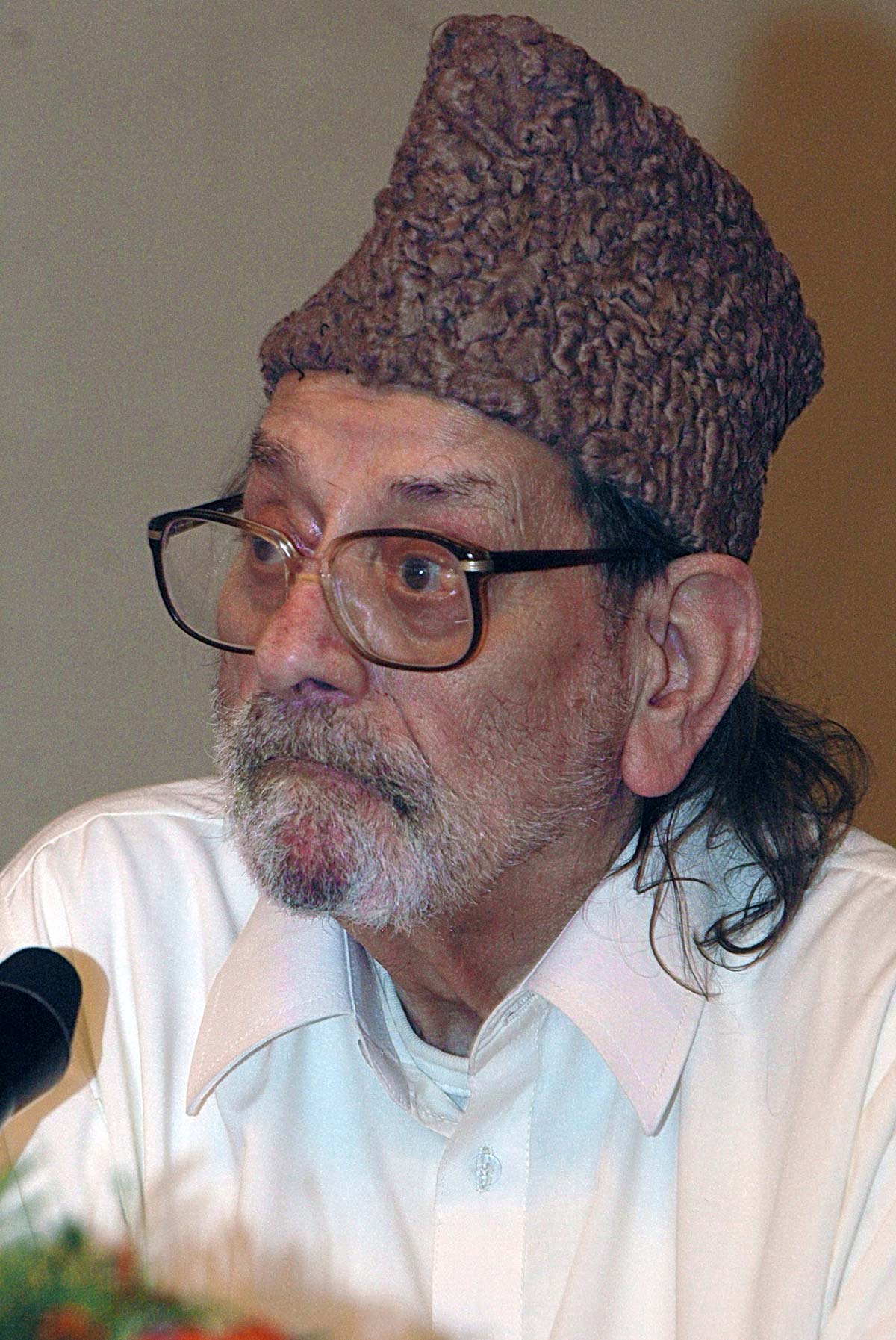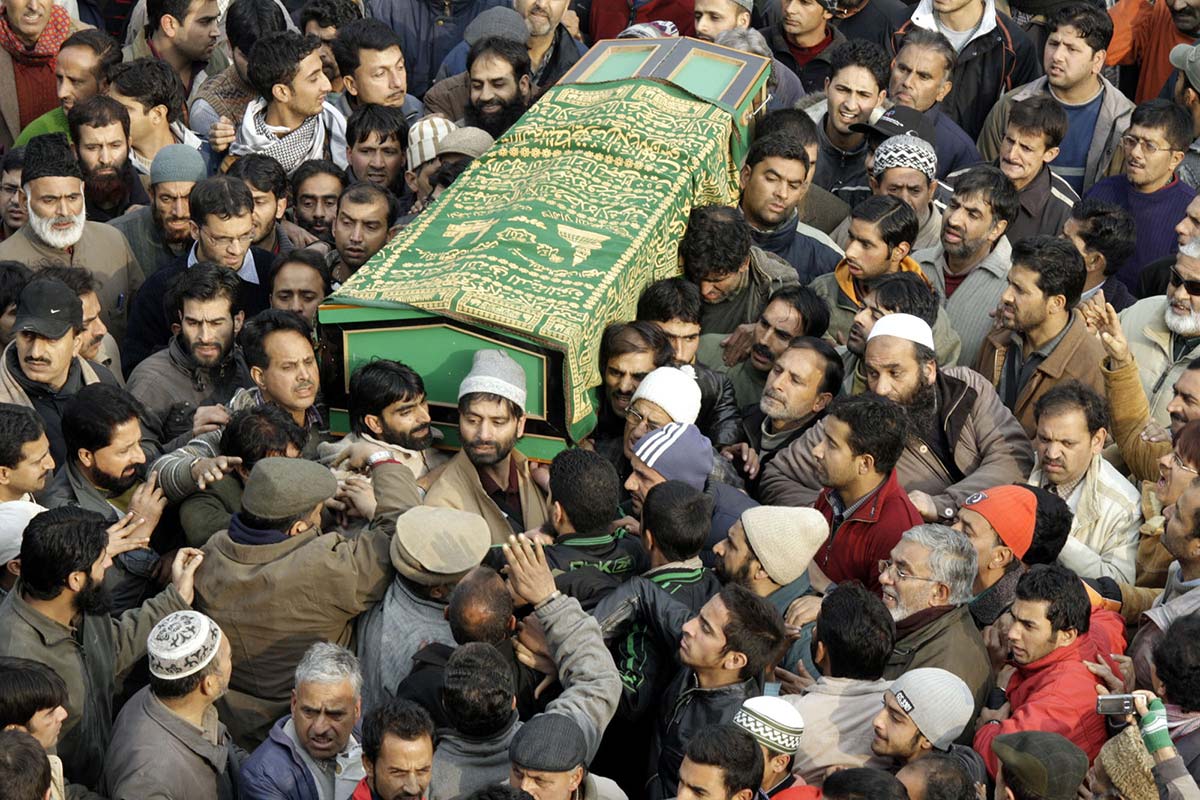Khalid Bashir Ahmad recalls his association with Aftab founder Khawja Sanaullah Bhat from the days when journalism in Kashmir was synonymous with the Aftab.

My association with Khawja Sanaullah Bhat or Khawaja Sahab as he was popularly known, lasted for a shorter period than my association with his newspaper as a writer. In fact, it was 7 years after my first short story was published on January 15, 1972 in the Aftab that I personally met the man who had attained a mythological character in contemporary Kashmir. Encouraged by the publication of the short story, I prolifically contributed to the newspaper both in prose and verse while I was still studying in college and university.
After doing my Masters in Political Science I was still looking for a job when during the summer of 1979 columnist G M Zahid who was then an official in the State Information Department told me that Khawaja Sahab was looking for a youngster who had flair for writing in Urdu and that I should go there and meet him. He said he would take me to his officer whom the Editor Aftab had asked to look for such a talent. That is how my first meeting with the legendary journalist took place as I started working for the newspaper.
As my first assignment, right away, I was handed down some news takes from PTI and UNI for translation which I did immediately and sent to Khawaja Sahab. The stories were published in the next day’s issue. Tahir Mohiuddin and Yusuf Jameel were already working on the news desk. The latter had graduated to the position of the right-hand man of Khawja Sahab. Earlier, the position was held by the former. It did not take long for me to strike a chord with them and other staff and I got a warm and friendly atmosphere to work in.
(Kh Sonaullah Bhat)
Since childhood when I started reading the Aftab, Khawja Sanaullah Bhat’s personality was imprinted on my mind as a fabled character. This was the time when journalism in Kashmir was synonymous with the Aftab. The newspaper was read literally in every locality, town and city. In Srinagar, it was an important ingredient of the breakfast for those who afforded to buy a copy and the rest would read it in hair-cutting saloons that served as gossip and political discussion centres or in restaurants. There was hardly a barbershop in the city that would not subscribe to the newspaper. The news and other content in the Aftab enjoyed the highest credibility among readers so much so that even the lighter and satirical column, Khizr sochta hai Wular ke kinaray, too was taken as fact rather than fiction.
The contribution of Khawaja Sahab in the promotion of Urdu journalism in Kashmir is unparalleled. In many ways, he performed the leading role. The home delivery of newspapers in Kashmir is his contribution. Before him, hawking was unknown here. He engaged runners and thus laid the foundation of an organized system of transmission of news in the Valley. He also played the pioneering role in engaging full-time news reporters and staffers that, at a later stage, was institutionalized by the Greater Kashmir. The informal training institute that the Aftab served for such people saw several journalists coming out from here who made a mark in the field of journalism at the national and international level. The photojournalism in Kashmir also owes its origin to the Aftab.
(Khawaja Bhat’s funeral procession in Lal Chowk)
Another milestone achieved by Khawaja Sahib was the introduction of the offset printing in the Valley, in fact, the State, and thus making the content more interesting and attractive by visual support. Before this, the newspapers in Kashmir, as also in Jammu, were published through the hackneyed and outdated litho printing process. It served as a very pleasant development in the promotion of Urdu journalism in Kashmir. Burning with the desire and urge to take Urdu journalism in the Valley out of its primitive mode, he made yet another singular contribution by subscribing to the Press Trust of India (PTI) and United News of India (UNI) news services, introducing to his readers the latest news and happenings across the globe. The two news services had an arrangement with global newsgathering agencies like Reuters, Associated Press, Agence France Presse, etc. which brought readers closer to the international news scene. These and several other singular contributions made Khawja Sahab a highly respectable person and a journalist who invoked awe and fear among the rulers that be. During my short stint with the Aftab, I have seen several important political personalities sitting in obedience before him. He did not visit rulers. Instead, they would come to him. The popularity enjoyed by his newspaper had given him tremendous influence only matched by political power. He was never accused of making money in exchange of publication of news.
My stay in the Aftab was the period of Soviet aggression and the occupation of Afghanistan. The stories of torture and bloodshed by the Red Army were brought in the public domain in Kashmir by the BBC and the Aftab. The latter would regularly publish, with a degree of commitment, the heroics of Afghan Mujahideen and foretell the defeat of the Big Bear. Tahir Mohiuddin who seemed well versed with the war geography of Afghanistan was behind the minutest details from the battlefield given by the newspaper. The Aftab was responsible for making Noor Muhammad Tarraki, Babrak Karmal, Najib Ullah, Sibgatullah Mujadidi, Gulbadeen Hikmatyar, Ahmad Shah Masood, Abdur Rashid Dostam et el. household names in Kashmir. Alongside the Stinger missiles fired by the mujahideen on the Soviet troops, the Aftab was regularly pounding them with Harpoons of written words.
Khawaja Sahab would encourage in whoever he saw a flicker of promise. I recall two instances of his encouragement of my work. My first outdoor assignment was to cover the then chief minister, Sheikh Muhammad Abdullah who was to announce candidates for the Lok Sabha elections at a public meeting at the Mujahid Manzil. Interestingly, it was the first time I saw the Sheikh at such a close quarter sitting as I was just behind him on the podium. It took quite a long time for the function to conclude and by the time I returned to file the story, it was late in the evening given the closing time for newspaper offices then. I did the story and left for home. Next morning, a pleasant surprise awaited me. My story was the first lead and over and above it, I had won the first credit line for a news story in the State. That was a huge encouragement and an honour I would always cherish. More than any merit in the story, it showed how Khawja Sahib encouraged people.
Around this time, the Legislature was in session in Srinagar and there was an incident in which Abdul Gani Lone, an opposition MLA, was roughed up by ruling party members. The news had reached the office and I penned a quartet and showed it to Tahir Mohiuddin. He was impressed and in turn, showed it to Khawja Sahab. Minutes after, he called me and profusely praised the effort. Next day, it appeared as a front-page box item. With this, the “Versified cartoon’ was born in journalism in J&K. Till my departure from the Aftab, this stayed as a daily feature on current affairs on the front page. The Old Man of journalism in Kashmir was not happy on my moving out of the Aftab when I was appointed as Information Officer in the State Information Department. On April 16, 1980, as he was leaving for home in the evening, I asked for permission to leave the organization to join new assignment. He disapprovingly looked at me and said, “I am happy but I will not congratulate you.”
Khawaja Sahab and the Aftab were synonymous. It was impossible to imagine one without the other.
For half a century the two dominated the journalistic horizon in Kashmir and would be remembered as the most significant chapter of the history of journalism in Kashmir. With his untiring efforts, he made the Aftab the largest circulated newspaper in the Valley but despite the resources available with it, the newspaper failed to convert itself into a platform for academic and intellectual discourse. Sadly enough, it could not enlist intelligentsia as its readers even as it was hugely popular with common masses. Moulding public opinion on issues of price rise or scarcity of essentials is important but journalism has moved much ahead. Fifty years of regular publication with many first to credit is an enviable achievement in itself, but a newspaper with such a distinction deserved to move beyond mundane issues. The job of dissemination of news is carried out by all newspapers of whose there are 400 plus published in Jammu & Kashmir and with Internet and cable news networks there is the problem of an abundance of news rather than its scarcity. What was expected of an established newspaper like the Aftab was to grow as an institution of research and knowledge.
Khawaja Sahib is no more with us but his pioneering work has earned him a distinguished place in the annals of journalism in Kashmir.
May his soul rest in peace.

















